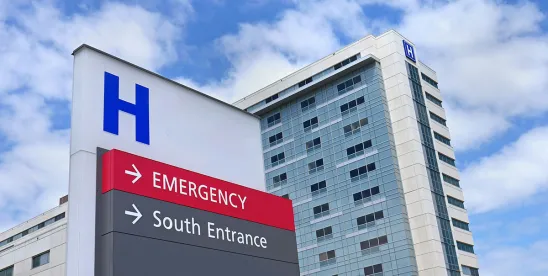Global hospital budgets, where hospitals receive a fixed amount of revenue for the upcoming year for a specific patient population (e.g., Medicare and/or Medicaid), are the opposite of fee for service reimbursement.
The Center for Medicare and Medicaid Services (CMS) and state Medicaid programs have taken interest in global hospital budgets and hospitals in impacted states will need to prepare. This article summarizes two of these programs: the federal Advancing All-Payer Health Equity Approaches and Development (AHEAD) model and New York’s Health Equity Reform 1115 Medicaid Waiver.
AHEAD Model – Medicare, Medicaid and Commercial
On July 2, 2024 CMS announced that Connecticut, Hawai'i, Maryland, and Vermont will be the first state participants in the AHEAD Model. CMS expects to award up to 8 states this voluntary model that will run through 2034. AHEAD builds upon the work of existing Innovation Center state-based models, including the Vermont All-Payer Accountable Care Organization Model, the Maryland Total Cost of Care Model , and the Pennsylvania Rural Health Model .
AHEAD is a state total cost of care model that seeks to have participating states use their authority to assume responsibility for managing health care quality and costs across all payers, including Medicare, Medicaid, and commercial (like Medicare Advantage plans, Medicaid managed care organizations, and commercial payors). It aims to strengthen primary care, provide financial stability for hospitals, improve care coordination, and increase screening and referrals to community resources like housing and transportation to address social drivers of health.
The model is composed of the following:
- Hospital Global Budgets: Hospitals will convert from their current reimbursement methodologies (e.g., fee-for-service) to a fixed amount of revenue for the upcoming year for a specific patient population or program, such as Medicare fee-for-service beneficiaries. CMS is hoping this encourages hospitals to eliminate avoidable hospitalizations and improve care coordination between hospitals, primary care providers, and specialists. The program’s intent is that increased investments in primary care under the Model can be offset over time by statewide savings generated by hospital global budgets.
- Primary Care AHEAD: Primary care practices located in a participating state or sub-state region will have the option to participate in Primary Care AHEAD, the primary care program component of the model. Primary Care AHEAD will align with ongoing Medicaid transformation efforts within each participating state and aims to increase Medicare investment in primary care.
CMS will provide funding to participating states for up to 6 years to support their participation in this model. A maximum of $12 million dollars may be awarded to each participating state. Model performance periods for states are scheduled to begin in either January 2026 or January 2027, depending on the cohort states apply to and their respective pre-implementation period (18, 24, or 30 months). Payment adjustments will be made for health equity improvements and reduction of avoidable care.
New York’s Medicaid 1115 Waiver
CMS approved New York’s Section 1115 Waiver amendment in early 2024. During the term of the amendment (January 9, 2024 through March 31, 2027), New York aims to fundamentally reform the way health care services are delivered through its Medicaid program. The demonstration amendment also aims to support hospitals that help serve the most vulnerable populations and have significantly more adverse health risk factors and poorer health outcomes compared to other parts of the state.
The Medicaid Hospital Global Budget Initiative included in the waiver amendment allocates $2 billion to a subset of financially distressed safety net hospitals in the New York metropolitan area. The Medicaid Hospital Global Budget Initiative is twofold. First, the initiative will spur a transition to rewarding value rather than volume of care provided. Second, the initiative will also help with establishing sustainable base reimbursement rates for safety net hospitals and addressing significant health care workforce shortages in safety net settings.
The 1115 waiver also includes other initiatives to strengthen delivery of health care services. The workforce initiatives include a loan repayment program for clinicians who commit to working in community-based practices in underserved areas, and enhanced training for under- and unemployed individuals who assist doctors and nurses as part of broader health provider teams. Additionally, New York will increase and sustain provider payment rates and Medicaid managed care payment rates for obstetrics, primary care, and behavioral health.
Takeaways
Hospitals considering participating in global hospital budget programs should begin to take a variety of steps to make an informed choice regarding their degree of participation and begin now to build out the tools they will need to succeed in the program. Once a decision to participate is made, planning for a successful transition to a global budget will require strategy development, gap assessments, data analysis, financial modeling, community partnerships, gainsharing and more.





 />i
/>i

